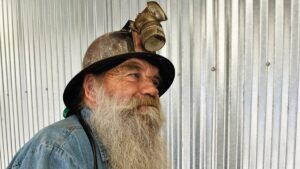Machine Earning: The rise of AI in exploration brings tech billions to miners

Can miners let the robots do the work? Pic: Getty Images
The new year kicked off with the major mining news that KoBold Metals had raised US$537 million to advance its global portfolio of projects.
The unlisted artificial intelligence explorer is backed by billionaires including Bill Gates and Jeff Bezos, as well as BHP and Mitsubishi Corporation.
The cash raised in the Series C funding round takes the total raised by US-based KoBold to US$1 billion and values the company at US$2.96bn.
The company claims to have the world’s largest research and development budget dedicated to the search for battery minerals, spending more than US$100 million a year.
Its team of 100 scientists include alumni from Google, NASA, Exxon, BHP (ASX:BHP), Apple, Barrick Gold, Meta, Ivanhoe, Vale and Rio Tinto (ASX:RIO) who are working on 70 exploration projects across five continents.
The news of KoBold’s latest raising has sparked excitement in mining circles, who have renewed hope it may mean the funding floodgates will open for explorers.
Canaccord Genuity analyst Paul Howard told Stockhead the company’s big-name backers was a positive for the mining sector.
“My view is that, in itself, has attracted attention to mining when your standard raise to go drilling hasn’t necessarily attracted big names like those big tech investors,” he said.
“In that regard, it’s super exciting and it certainly puts mining or mineral exploration in the spotlight in Silicon Valley and those sort of places around the world.”
Home grown
KoBold’s big raising follows a big funding round by unlisted Australian start-up Fleet Space Technologies in December.
Fleet Space closed a $150 million Series D funding round, led by Canada’s Teachers’ Venture Growth and joined by existing investors Blackbird Ventures, Hostplus, Horizons Ventures, Artesian Venture Partners and Alumni Ventures.
While Fleet Space is involved in a number of sectors, the fresh funding will be used to expand the capabilities of its global end-to-end exploration platform, ExoSphere, which is aiming to accelerate the discovery of critical minerals.
Teachers’ Venture Growth senior managing director Rick Prostko described current mineral exploration methods as “inadequate”.
“Fleet Space addresses this with advanced 3D subsurface imaging and AI analysis tools, which have the potential to sustainably transform the industry,” he said.
The success of the two start-ups is in contrast with the story of SensOre.
AI-driven explorer SensOre listed on the ASX in early 2022 following a $7.5 million initial public offering.
However, a year ago, the company rebadged as a traditional explorer, Premier1 Lithium (ASX:PLC), and demerged SensOre.
“Minerals technology has largely been the domain of unlisted companies with access to venture capital funding. Unfortunately, SensOre has been unable to gain traction from institutional and retail investors on the ASX to match the depth of capital and interest from the largely US-based technology market,” the company said at the time.
Since then, SensOre has attracted $1.5 million in funding from Alpha Future Funds and last month. New chairman Anthony O’Sullivan vowed to position the company “as leaders in new resources discovery through geoscientific innovation”.
KoBold – mining or tech co?
A deeper look at KoBold reveals it actually looks a lot like a traditional mining company.
Its main project, Mingomba in Zambia, was already one of the world’s largest undeveloped high-grade copper deposits when KoBold invested US$150 million in late 2022.
The company has committed to developing a mine at Mingomba, which was discovered in the late 1970s, and has been quoted as saying a large proportion of the latest funds raised will go towards development.
“There’s somewhat of an acknowledgement there that all this money is not for AI-driven exploration” Howard said.
“If you believe the numbers, 60% would be used for AI stuff, but I think the AI tag probably gets investors in the door, and then you realise you actually have to spend a heap of capital on drilling and developing projects and that sort of stuff.”
Howard said the AI angle gave KoBold a modern tech feel.
“It’s bringing that cool 90s US tech company into, really, an industry such as ours, that will be the future of data centres and those sorts of things going forward, and it kind of makes sense that they’re melding the two together,” he said.
“Certainly, the big AI data search is interesting and perhaps does a better job than just me or someone similar just sifting through data, but it’s all down to the inputs, and you still need to go out to the field and collect that data in the first place.
“So if I think about it, these guys aren’t going to make their own discoveries. They’re going to probably be looking at someone else’s data and they’ll be doing JVs to get into the projects.”
An association with KoBold can give an explorer a big bump, as seen with Canada’s Midnight Sun Mining Corp.
Shares in Midnight Sun, which announced a JV with KoBold in Zambia in February last year, are up 115% in 12 months, including 72% in the past month.
Which ASX explorers are using AI?
Fleet Space recently invested in New South Wales explorer Legacy Minerals Holdings (ASX:LGM).
Legacy managing director Christopher Byrne told investors last month the company engaged Fleet Space to deploy ambient noise tomography imaging after seeing the work it was doing with fellow NSW explorers Kincora Copper and Inflection Resources.
“We’re excited to see, not only the deployment of the ANT and the gravity, which will give us a very, very rich, comprehensive data set, but then at the back end we also get access to their AI systems in terms of bringing that together,” he said.
“That will help present some drill targets for us and inform our exploration team’s testing approach.
“We’re really looking forward to that partnership playing out and delivering, hopefully, a pretty big discovery.”
Fleet Space has also invested in Astute Metals (ASX:ASE) and is collaborating with the company at the Georgina iron oxide-copper-gold project in the Northern Territory.
In the US, Eagle Mountain Mining (ASX:EM2) used Fleet Space’s ExoSphere technology to define copper porphyry targets under cover at its Silver Mountain project.
South Australian copper plays Hillgrove Resources (ASX:HGO), Coda Minerals (ASX:COD) and Thor Energy (ASX:THR) have also deployed ExoSphere.
Fleet Space has also been active in the lithium space, working with Core Lithium (ASX:CXO) and Evergreen Lithium (ASX:EG1).
Meanwhile, another unlisted start-up, Earth AI, is working with Kincora Copper (ASX:KCC) and Legacy in NSW, and Tivan (ASX:TVN) at Sandover in the NT.
Earth AI’s work at Legacy’s Fontenoy project led to a PGE discovery in February 2024.
Iceni Gold (ASX:ICL) announced in August that AI work by SensOre had defined 40 new gold targets at the 14 Mile Well project in WA.
The project has since attracted Gold Road Resources (ASX:GOR) as a farm-in partner.
Human intelligence still required
It is likely the number of explorers using AI to assist with discovery will continue to rise.
“If I’m a $10 million-capped explorer and can get interest from investors by using new technology, I can imagine they would do that,” Howard said.
Howard said AI wouldn’t replace geologists and was only as good as the data that it used.
“I think it’s good, but I think it’s a case of buyer beware,” he said.
“It’s that age-old phrase, rubbish in, rubbish out, so if the data that goes into it in the first place is crap, you’re probably not going to get the best target out of it.”
Byrne agreed that there would still be a place for traditional exploration but it was about collaboration.
“You can invest in a company that has the AI technology, but if you want to get exposure to the outcomes or the products that the AI can deliver, like a big tier-1 mineral discovery, that involves getting exposed to a company like Legacy that’s doing that exploration.”
At Stockhead, we tell it like it is. While Legacy Minerals Holdings, Eagle Mountain Mining and Hillgrove Resources are Stockhead advertisers, they did not sponsor this article.
Related Topics

UNLOCK INSIGHTS
Discover the untold stories of emerging ASX stocks.
Daily news and expert analysis, it's free to subscribe.
By proceeding, you confirm you understand that we handle personal information in accordance with our Privacy Policy.








